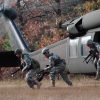calsfoundation@cals.org
Scouts in Chicot and Desha Counties (November 5–8, 1863)
Troops of the Union’s Mississippi Marine Brigade conducted a series of scouting expeditions in Chicot and Desha counties November 5–8, 1863, capturing several Confederate soldiers and intercepting government documents.
The Mississippi Marine Brigade had been conducting operations in Mississippi in late 1863 when it turned its attention to the Arkansas side of the Mississippi River and began a four-day series of scouts in the southeastern part of the state.
On November 5, 1863, Major David S. Tallerday landed at Sunnyside plantation in Chicot County with a contingent of mule-mounted soldiers and headed north to Lake Village (Chicot County). While on this scout, they captured a captain and five men reportedly of the Twenty-third Alabama Infantry Regiment who were conscripting men into the Confederate army and burning cotton to keep it out of Union hands.
A day later, Captain O. F. Brown led the brigade’s cavalry ashore at Gaines’ Landing (Chicot County) and rode toward Monticello (Drew County). During this fifteen-mile raid, they captured a few mules before returning to the fleet. That evening, brigade commander Colonel George E. Currie received a report that Confederate cavalrymen were camped about five miles from the river awaiting an opportunity to cross over into Mississippi, and he sent an infantry detachment under First Lieutenant Gresham Markle after them. He returned with a lieutenant and private of Whitfield’s Texas Legion, “having with them a considerable mail.”
The brigade’s infantry again set out from Gaines’ Landing on November 7 “with orders to operate as companies, in scouting the country, from the river as far back as possible.” They gathered some stock and several Confederate prisoners, including a “mail carrier, who was making his way to the river, with the intention of crossing that night.”
On November 8, 1863, Major Tallerday led the mule-mounted infantry north from Chicot County toward Napoleon (Desha County). By the time they met the fleet at Napoleon the next day, they had taken “quite a number of prisoners,” including a mail carrier “with over two hundred pounds of mail, in which were a large number of official documents, from Richmond, directed to the most prominent Generals in the Trans-Mississippi Department.” They also captured a pair of civilian cotton manufacturers who had just landed on the Arkansas shore with an $8,000 cotton machine they were taking to Camden (Ouachita County), “where the machine was to be used in making cloth for the Confederate army.”
While having little effect in the larger aspects of the Civil War, the four days of scouting in Chicot and Desha counties highlighted the impact the Mississippi Marine Brigade had in disrupting Confederate operations along the Mississippi River.
For additional information:
Crandall, Warren D., and Isaac D. Newell. History of the Ram Fleet and the Mississippi Marine Brigade in the War for the Union on the Mississippi and its Tributaries: The Story of the Ellets and Their Men. St. Louis, MO: 1907.
Simons, Don R. In Their Words: A Chronology of the Civil War in Chicot County, Arkansas and Adjacent Waters of the Mississippi River. Lake Village, AR: D. R. Simons, 1999.
Mark K. Christ
Central Arkansas Library System
 Civil War Timeline
Civil War Timeline Military
Military



Comments
No comments on this entry yet.